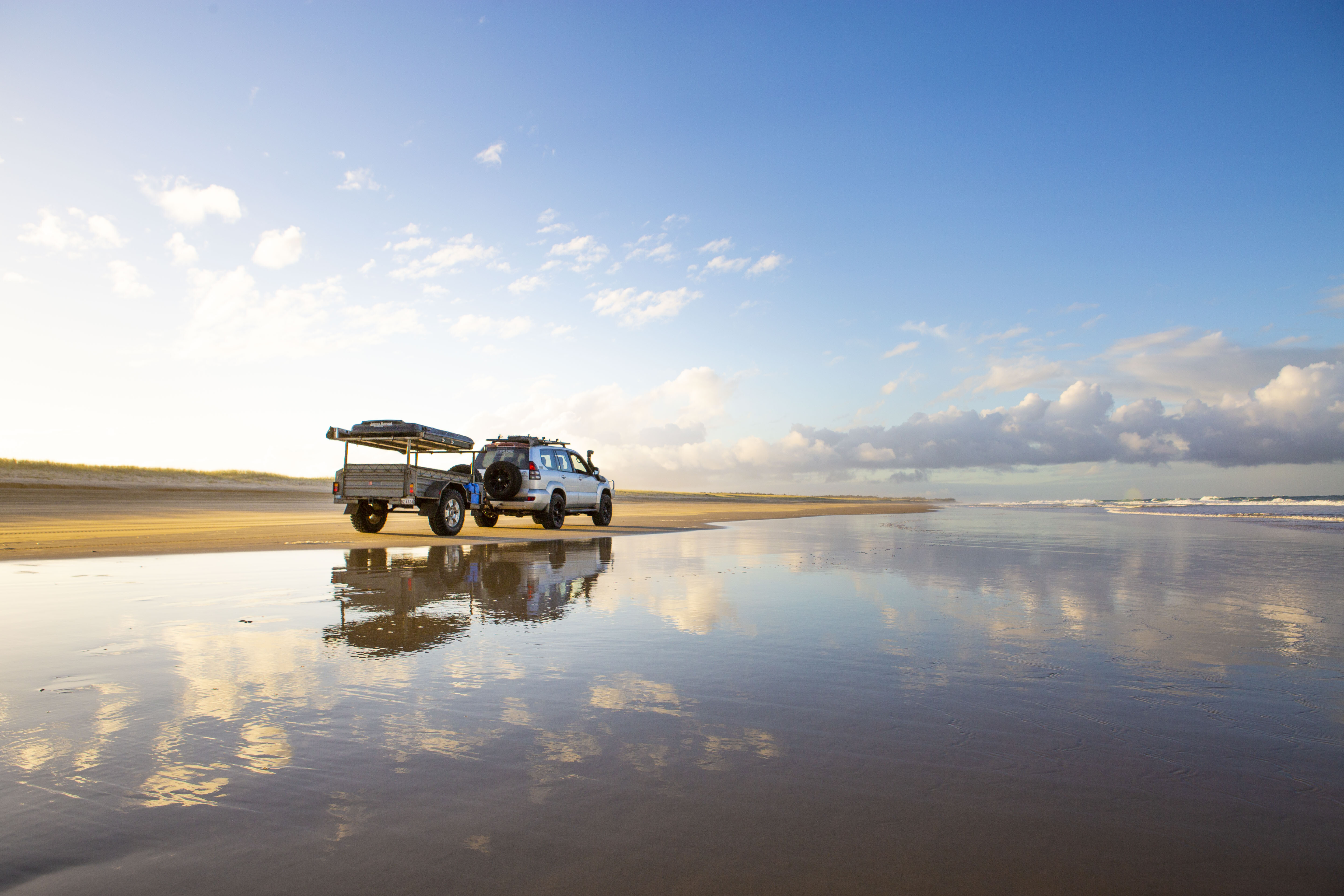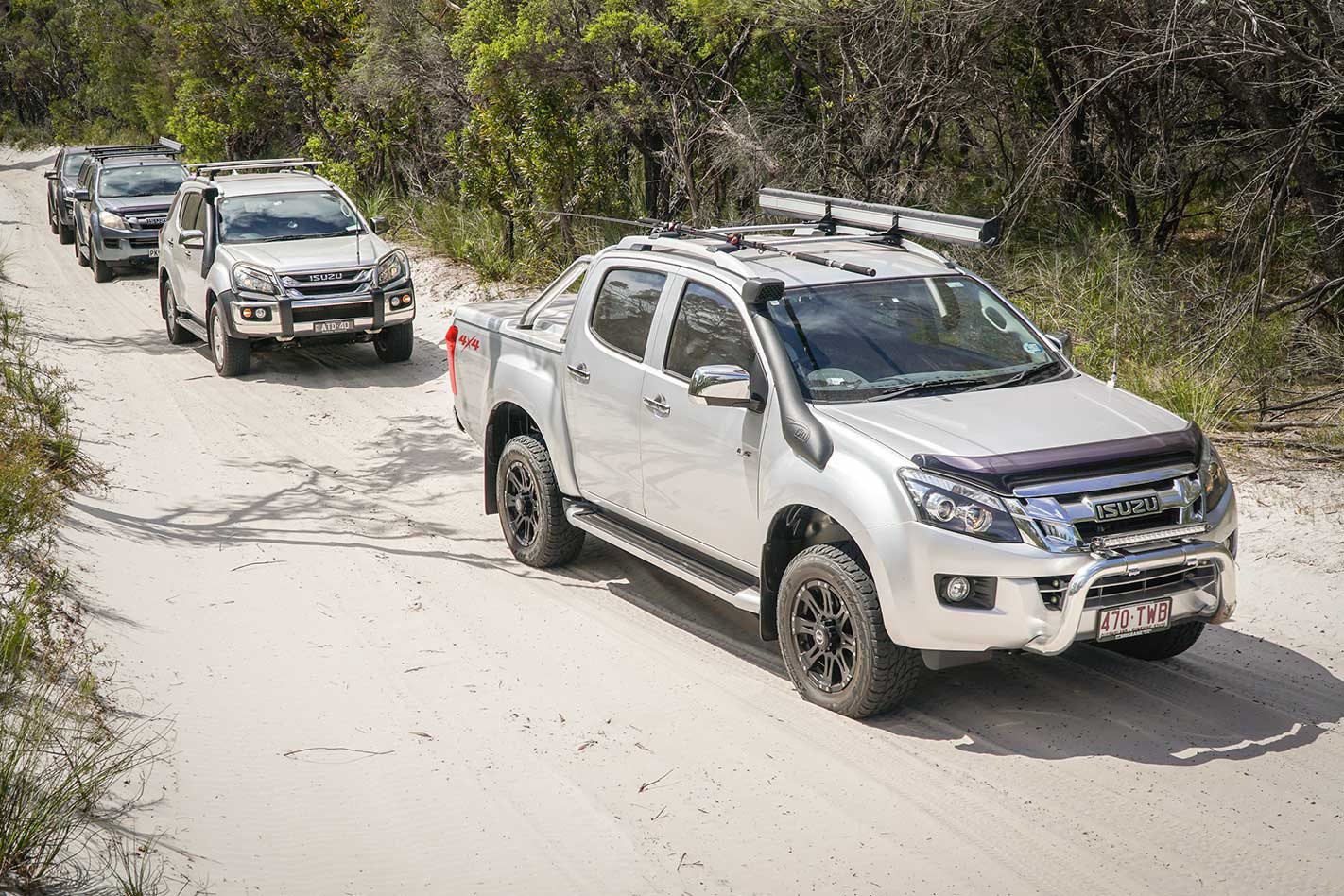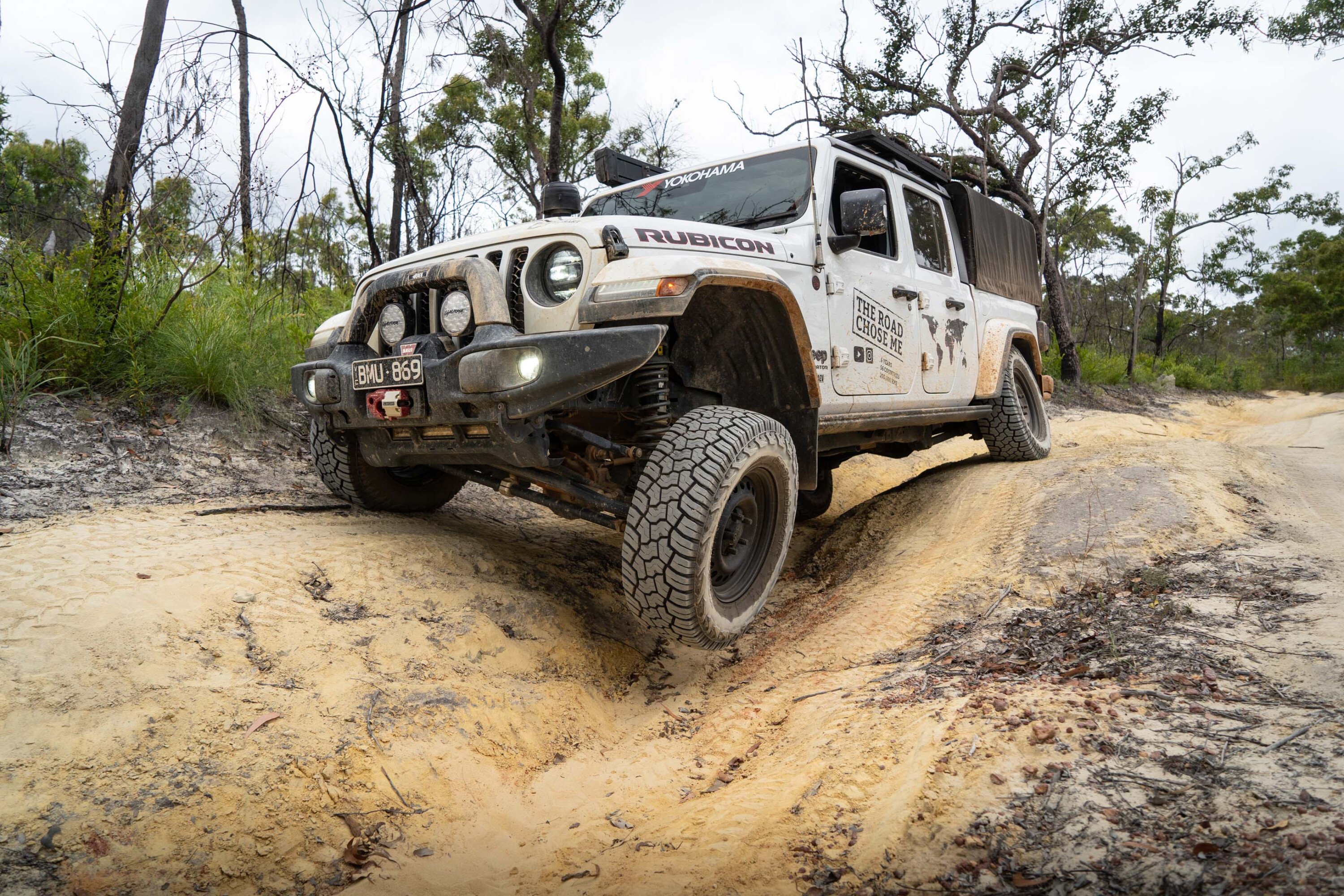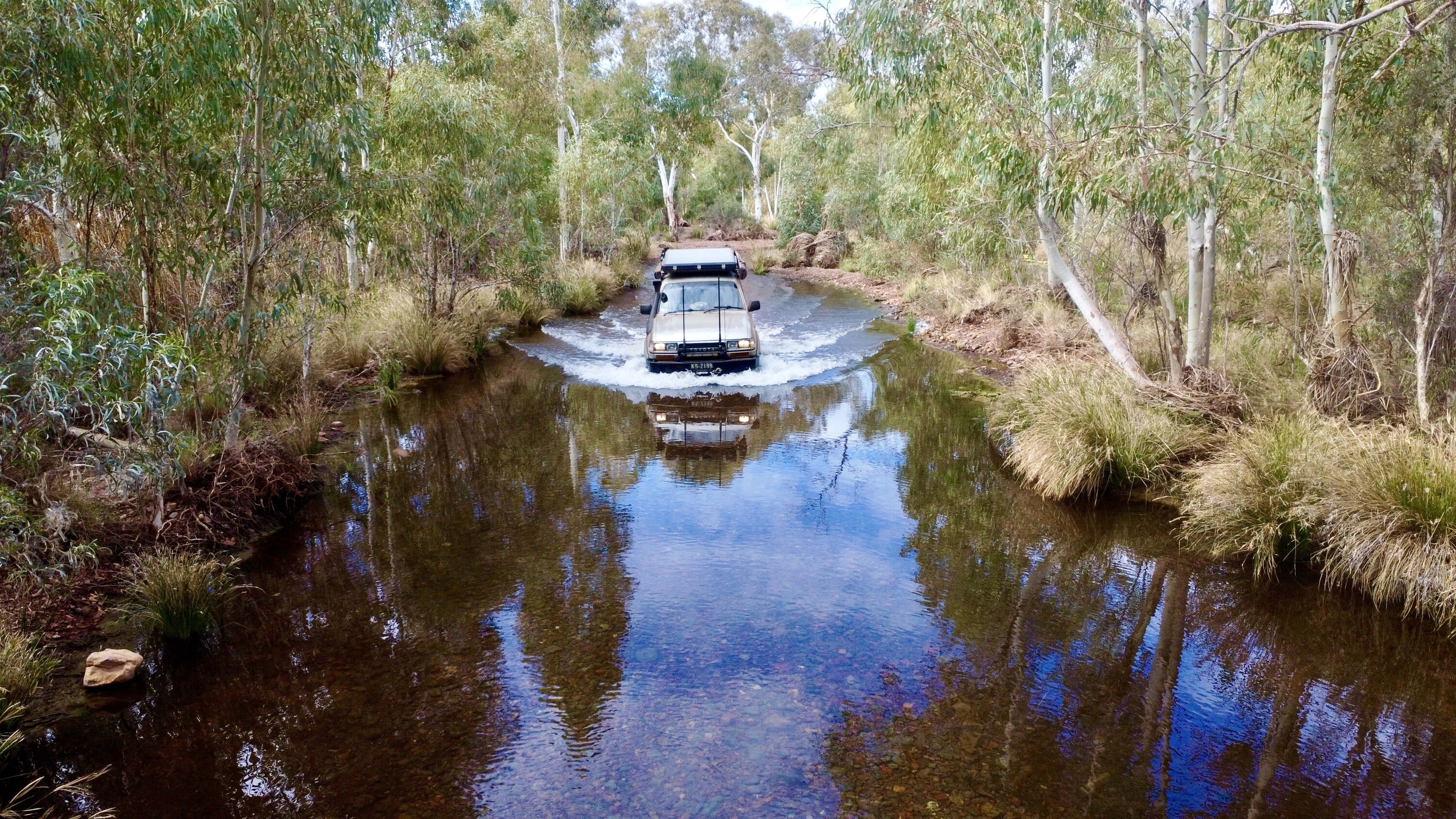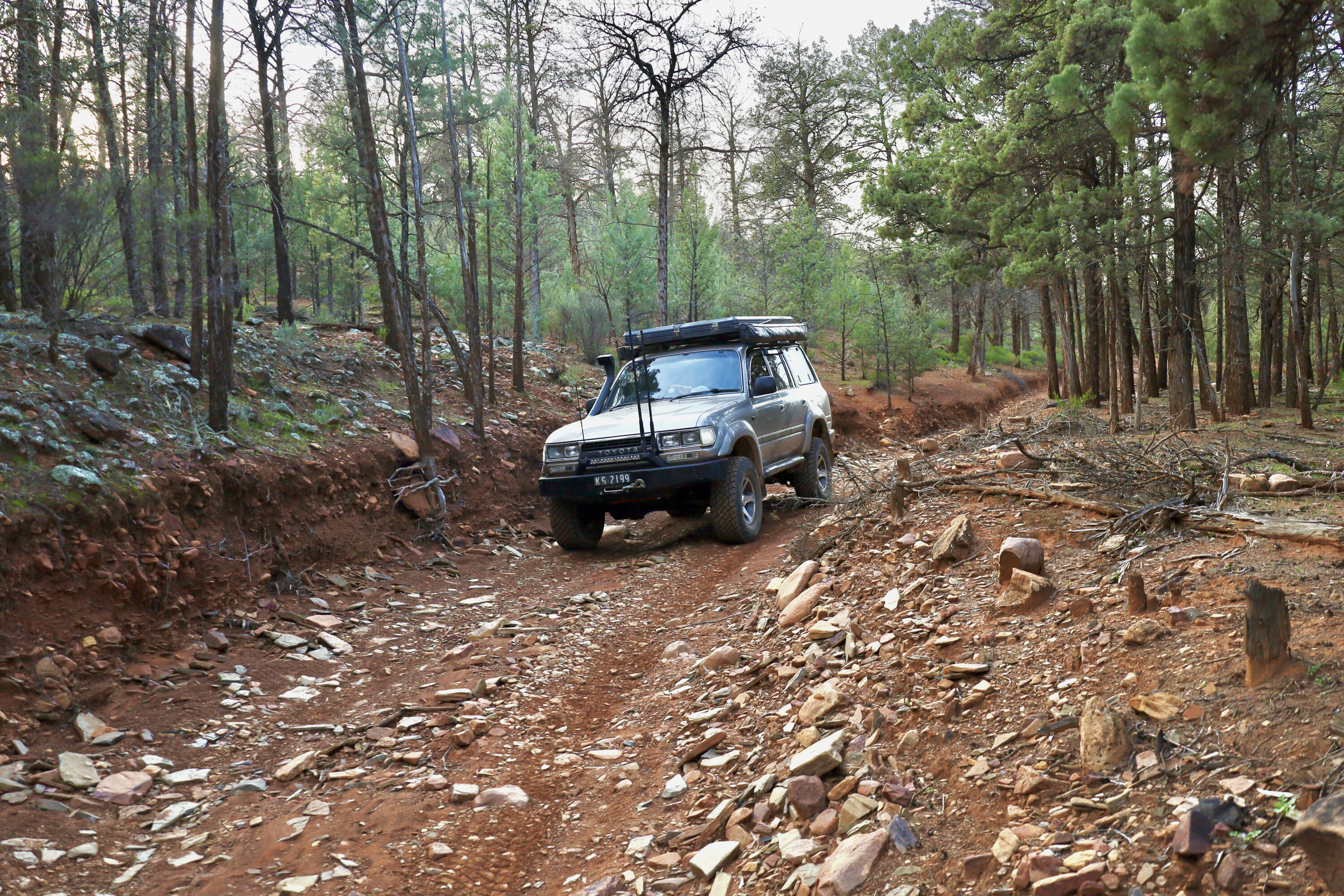It was the week of my fiftieth birthday. Like me, our crude but simple camping set-up had been sitting idle and collecting dust for too long. The Prado was running a little rough and it, too, needed some fresh air and an escape from all the mask-wearing and talk of lockdowns. A week at Fraser Island (K’gari) was the ticket for us both.Quite literally, K’gari means ‘paradise’ to the Butchulla people, but given all I’d seen and heard on the news last year, would it now be a ‘paradise lost’? Would the lush rainforest, majestic trees and clean and vibrant landscapes be a scorched and distant memory? There was only one way to find out.
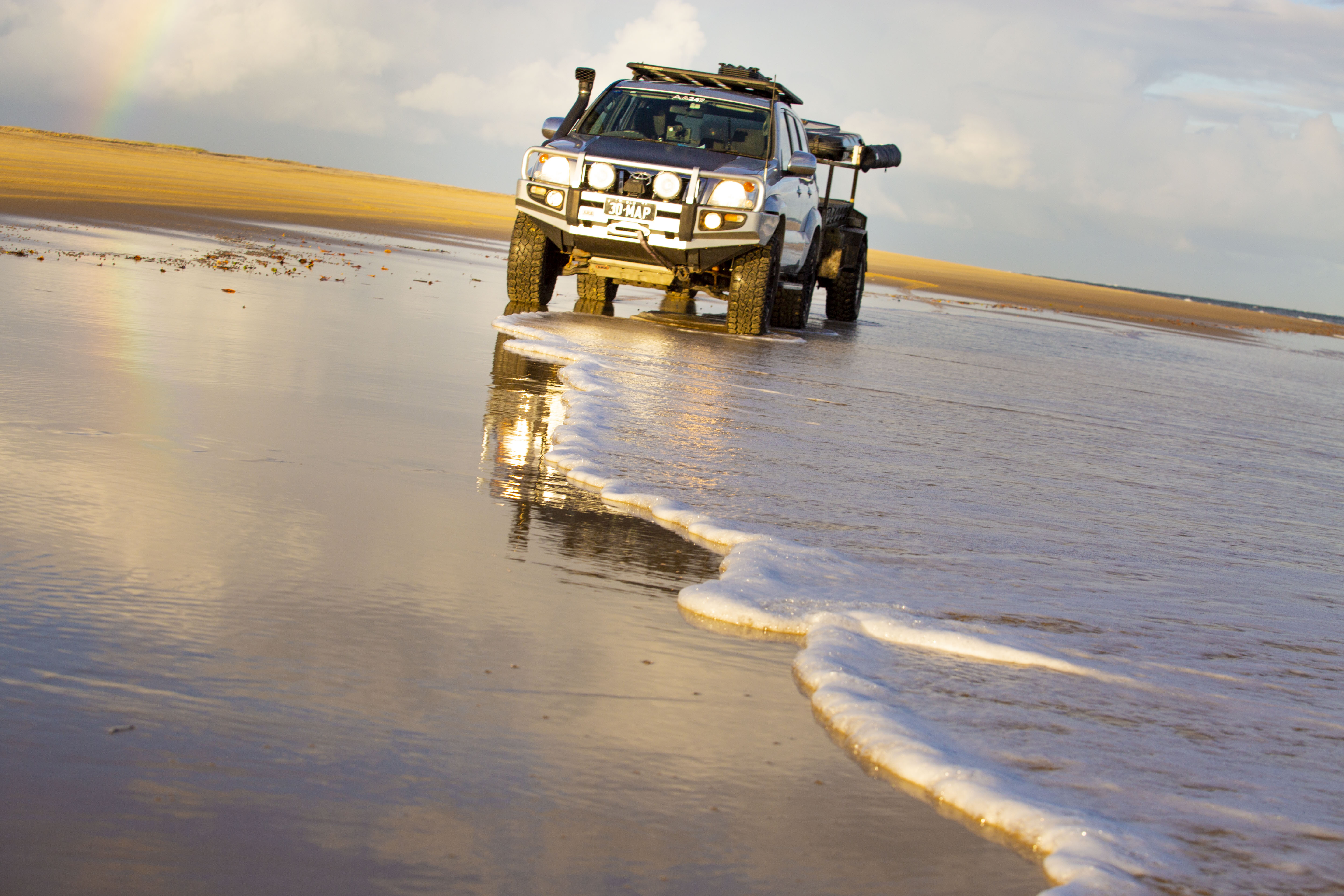
CAMPFIRE CHAOS
On October 14, 2020, four beachside campers north of Orchid Beach failed to extinguish their sand-covered but still-smouldering campfire, triggering an 870km² bushfire that ravaged over half the World Heritage-listed island.
It kept airborne and ground-based fire crews busy defending forest and homes for more than six weeks, before several rain events in early December finally extinguished the blaze. Both Kingfisher and Happy Valley communities were evacuated as the fires threatened beach houses and resort communities.
In many eastern beach areas, the fires burned to the shoreline, and most of the northern and western heathlands, swamps and forests were completely burned.
I caught a late afternoon ferry via Inskip Point and camped at Lake Boomanjin. After watching the sunrise across the lake’s tranquil waters, I explored its forested shoreline looking for evidence of the fires.
There were occasional blackened buttresses beneath the lush green, but it seemed the fire had been more cleansing than damaging here, burning slowly and only through the undergrowth. I headed north along the Southern Lakes Drive, one of my favourite forested drives, unsure what devastation may lie ahead.
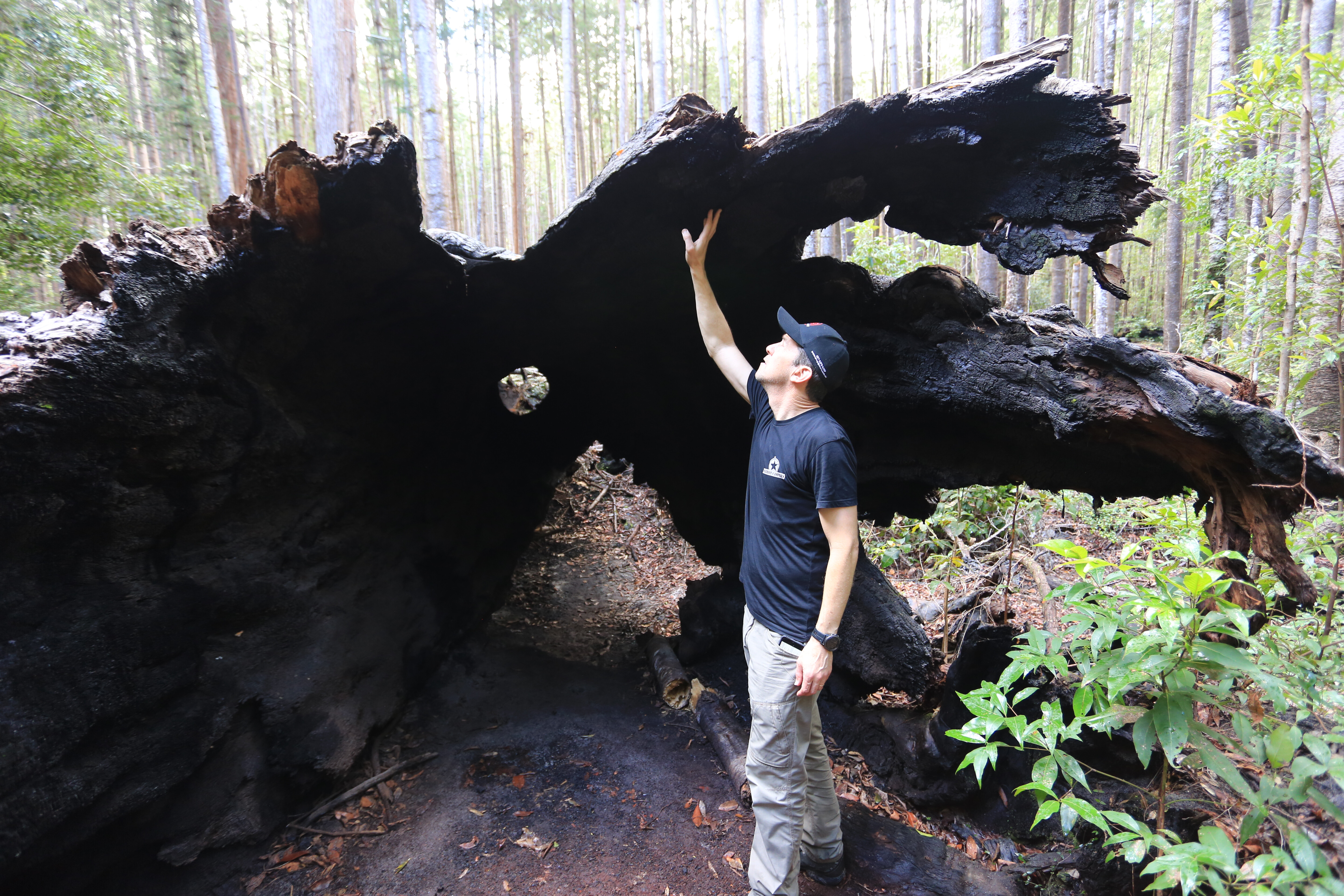
Just a few kilometres south of Central Station, I rounded the bend and stopped suddenly – my worst fears realised. I could still hear the echo of the thunderous crash as this once majestic forest giant was murderously slain by the licking flames.
Its death had been torturously slow, its innards were burnt to a hollow core and the melting roots could no longer point it skywards. After days of torturous smouldering, it had finally submitted to its fate. The now decaying body will feed a new generation of giants, and the freshly punctured canopy will flood in light for the new life.
The fire had cleared out the surrounding undergrowth, revealing the thousands of hoop pines planted back in the 1930s. Most had lay hidden for decades beyond the trackside rainforest understorey. Many were snapped like matchsticks and crumpled by the falling giant. With a laid-down diameter of 2.5 metres, it would have taken a whole family to hug the near eight-metre girth.I stood deep inside the buttress and walked a good 30 metres along the hollowed and lifeless trunk. My ‘moment’s silence’ complete and thankful that only the frailest and near-dead trees had been felled by the fire, I pushed on anxiously, still worried for the mass-destruction ahead.
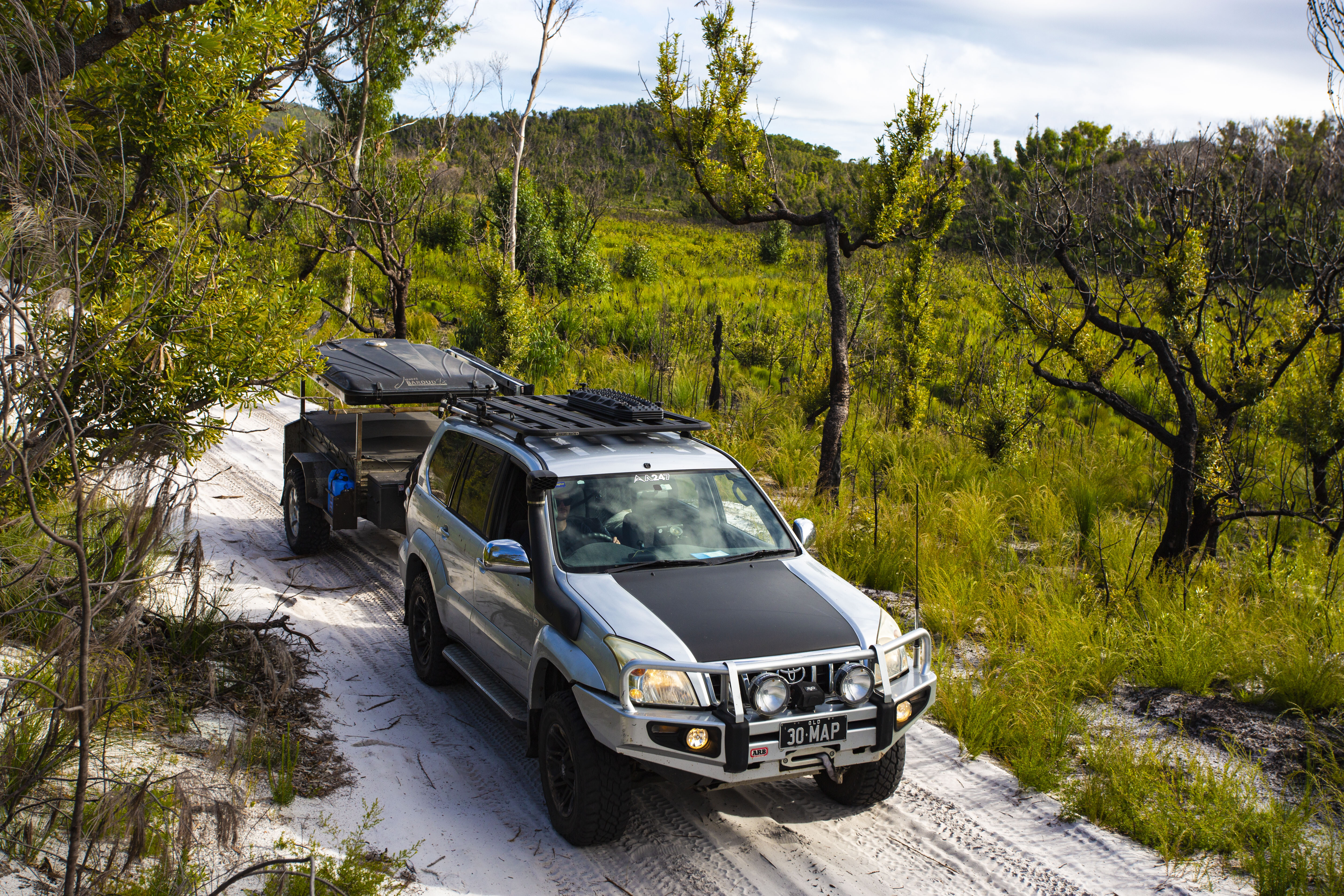
GETTING THERE
Vehicle ferry access is via Inskip Point (mantarayfraserislandbarge.com.au) or River Heads (fraserislandferry.com.au). Cost is around $200 return for a 4WD and trailer.Before you go, be sure to book your vehicle and camping permits online through the Queensland DES website: parks.des.qld.gov.au/parks/kgari-fraser/camping.
See the Great Sandy Marine Park Visitor Guide for info on recreational fishing regulations and Green Zones: parks.des.qld.gov.auBest Map: Hema’s Fraser Island printed map is the best for outlining all the beach camping zones; as is the older Hema Maps or Hema Explorer app, which still include this map.
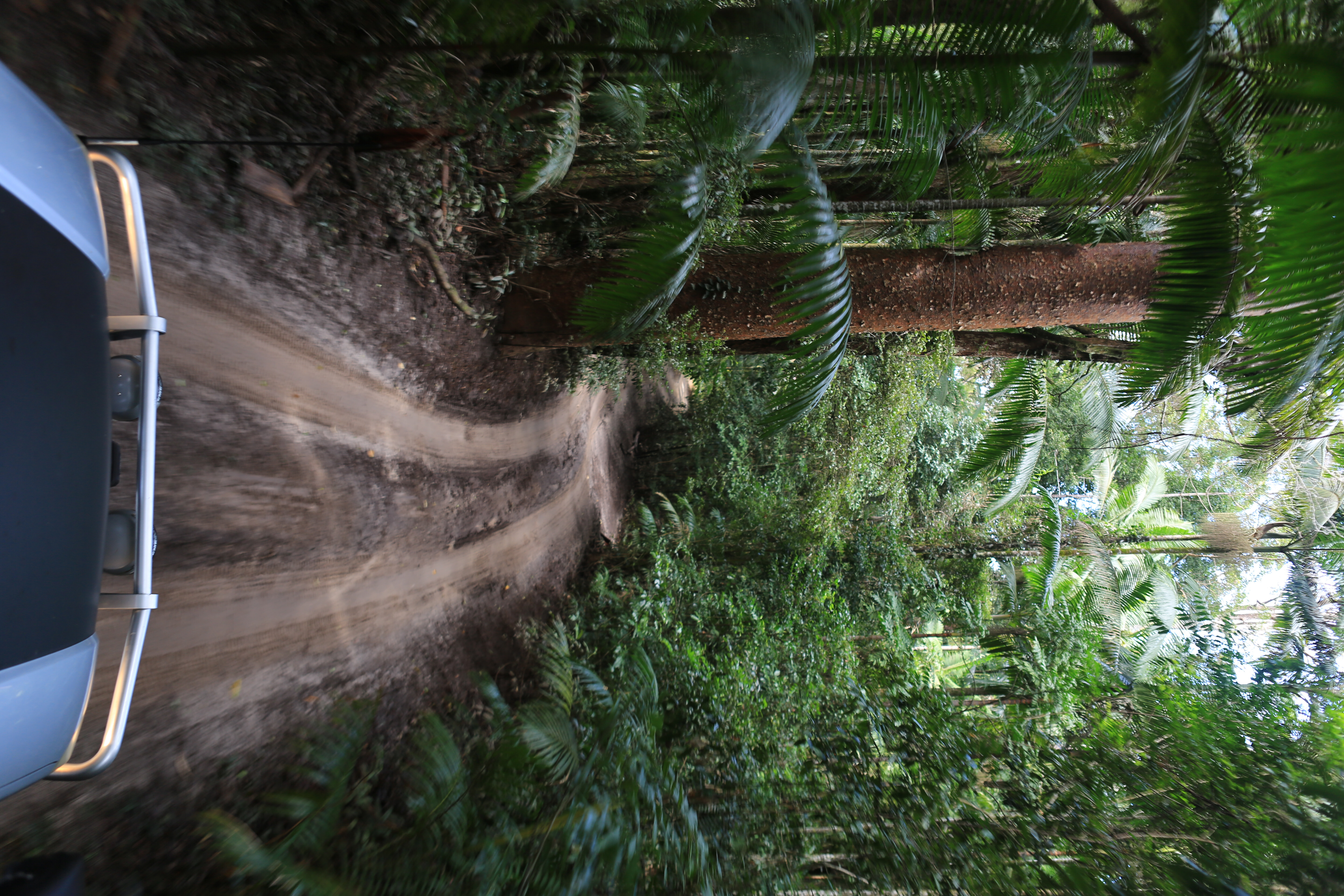
VERDANT OASIS
I cautiously turned in to the Central Station campsite. It was still green, lush and mossy with an assortment of quality, vacant sites. This shady haven had escaped the flames, as had most of the central rainforest.’
The relentless work of the fire crews had held back the pressing destruction, using the tracks as a fire break and sacrificially backburning as needed. Central Station, the Wanggoolba Creek boardwalk and Lake McKenzie were all kept safe.Much relieved and knowing the dropping tide would mean an easy afternoon run along Seventy-Five Mile beach, I swung east towards Eurong, grabbed a tasty pie and coffee and headed north to find a scenic beach campsite.
My good mate, Scotty, was flying in the next day, touching down on the beach at dawn. I’d have to wait until morning to venture deeper north and farther through the forest. Sadly, the real destruction was still to come.North of Cornwells Road, the fires had been much hotter and burned relentlessly throughout most of the central and northern parts of the island. The taller and wetter parts had fared better, but the fires had ripped through the open hillsides, consuming everything in their destructive path.
The ‘road closed’ sign at The Valley of the Giants turnoff was an ominous indicator of what lay beyond. We navigated 60km north along the maze of inland trails, following Northern Road for the most part, and criss-crossing Postans, Bogimbah, Moon Point, Bullock and Woralie Roads.
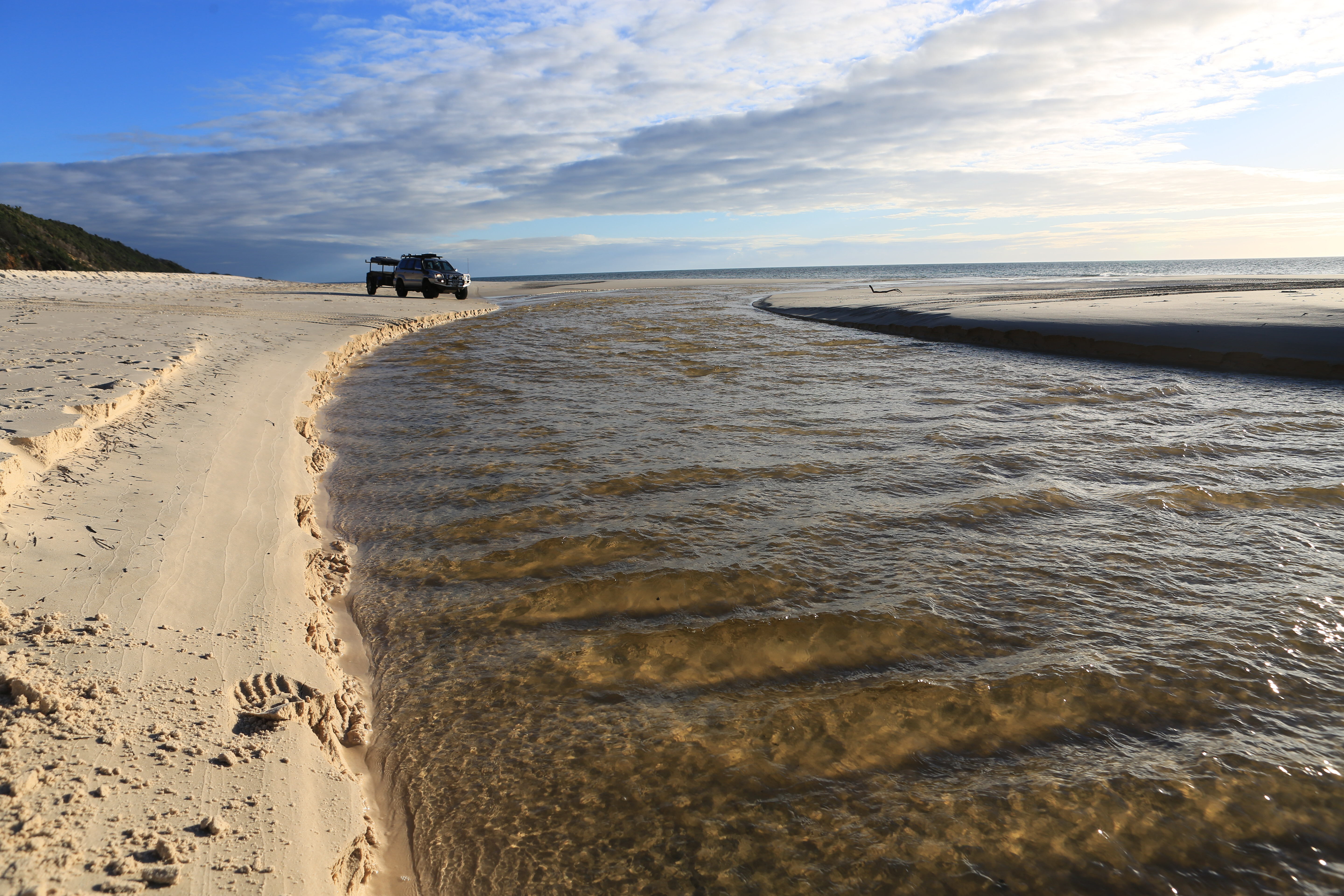
The farther north we went, the blacker the trunks became – even the swamps and grasslands had not escaped the inferno. The December rains had done more than just extinguish the flames. Every blackened branch was now awash with fluorescent, new life. Hellfire had tried to rob K’gari of her paradise beauty, but her radiance was returning in dramatic fashion. The contrast of vibrant green on charcoal black was truly remarkable.I’m amazed at the way Australia’s native vegetation naturally recovers after a devastating bushfire, and the variety of ways it does so. The still-golden scribbly gums seemed immune to the heat, but a closer looked revealed their bases were surrounded by layers of shed, burnt bark.
The woody banksia fruits had burst open with seed, relying on the heat to trigger their germination. The black, ash-laden swamp floor was now littered with tiny, flame-orange mushrooms, releasing rich essential nutrients back into the soil. The once-burnt bracken and grasstrees now exploded with a celebration of fresh green.
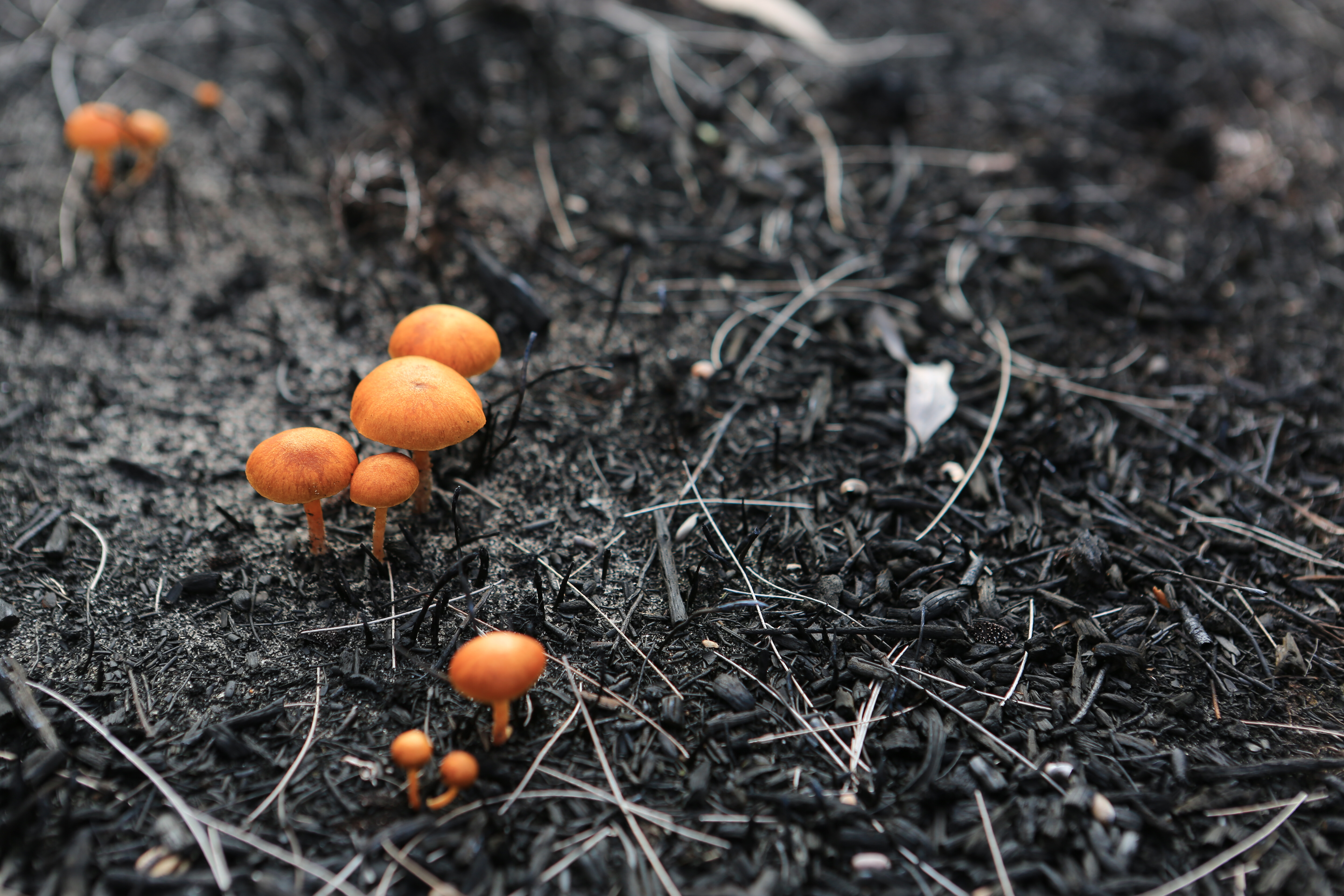
Confident that K’gari was on the road to recovery, we pushed on to the beautiful west coast beaches and set up the swags right on the beach.
Well-protected from the south-easterlies, K’gari’s west coast is the perfect place to turn off your phone, take off your watch and take in every second of the sunset as it melts into the sky-blue water. Watch for whales in the winter months or just silently explore the pure white beach and intimate tidal creeks for endless hours or even days.
FIRE BAN
Be sure to bring a gas stove, as for now, and likely permanently, no more fires are permitted on K’gari. She may not recover so easily next time.
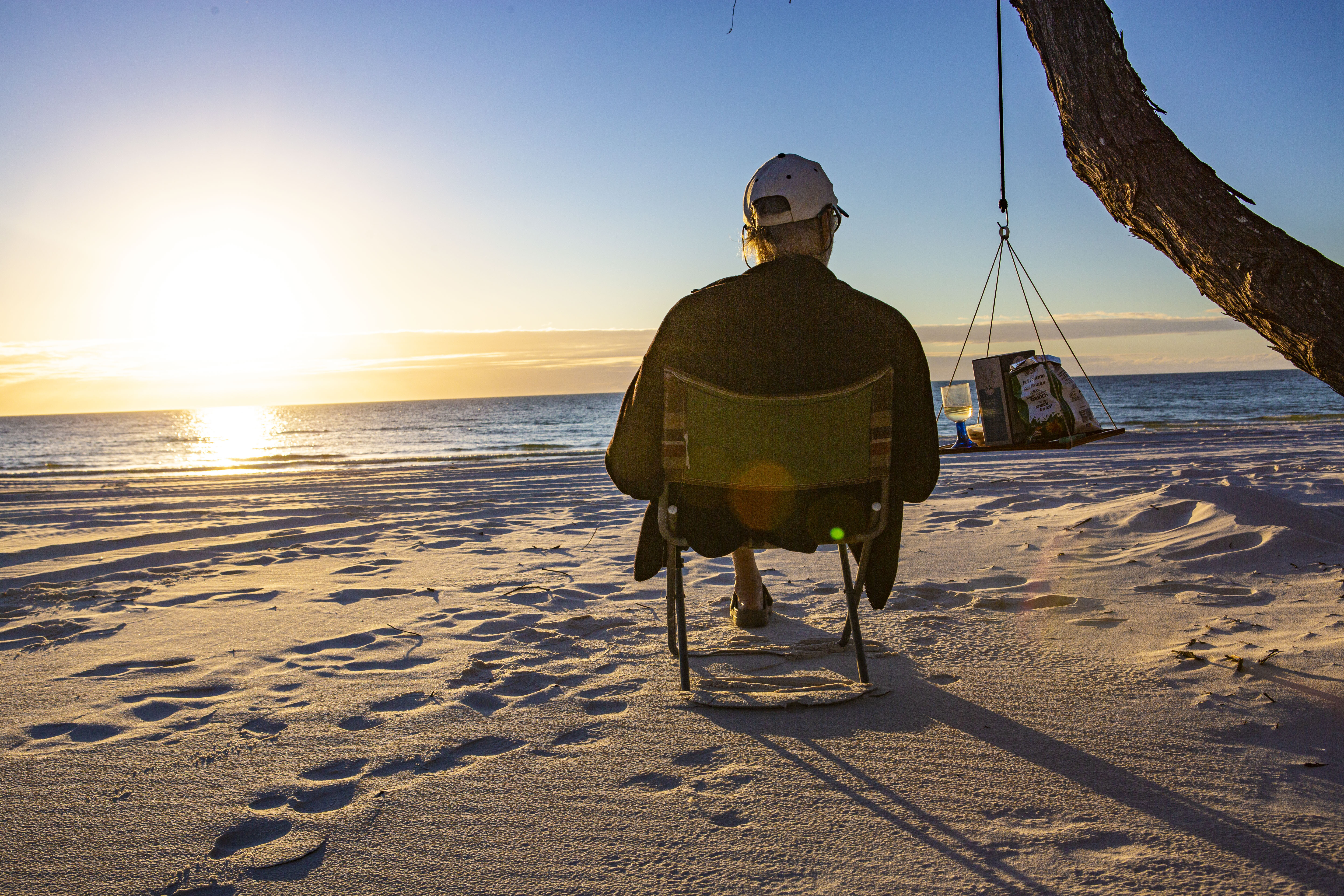
With an early start on our fourth day, we were soon past Indian Head and watching the humpback whales from the Champagne Pools boardwalk, before navigating the northern gateway of Ngkala Rocks. We made short work of the cavern through the coffee rock and the soft sandy bypass, before rounding Sandy Cape and heading west towards the lighthouse.Sandy Cape Lighthouse has long intrigued me. Built in 1870, this 33-metre tall lighthouse is mounted on a 130-metre hill but set kilometres back from the shoreline. The rocky outcrops of Indian Head and Waddy Point always seem more obvious dangers for passing ships.
But the near and present danger in these seemingly sublime waters is the submerged and sandy isthmus of Breaksea Spit, stretching 35km north from Sandy Cape and now the buried graveyard of several century-old ships.
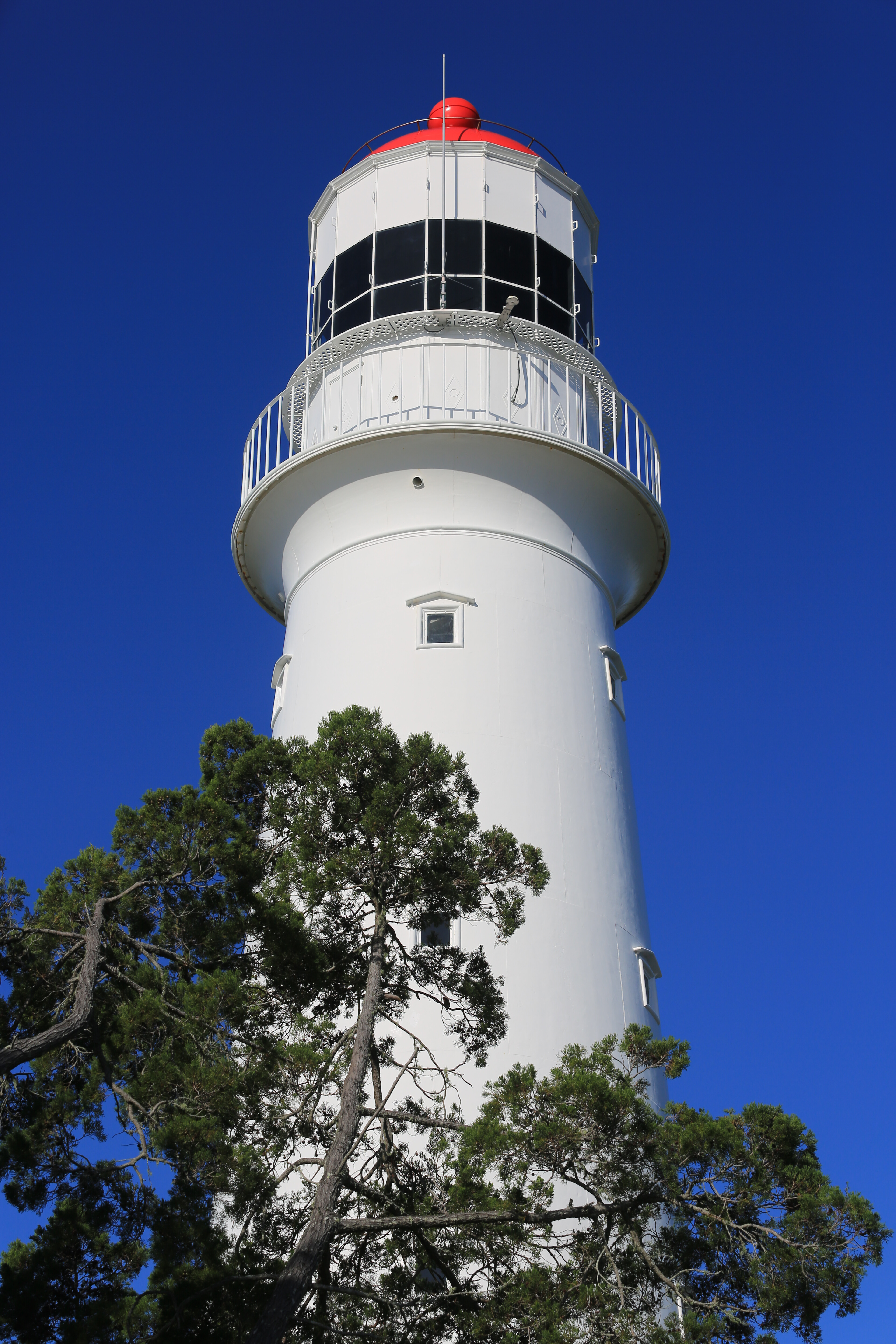
Sandy Cape is one of my favourite places on Fraser Island. I love the meeting of calm and turbulent waters, the sweeping tides, resting sea birds, and the clash of colliding currents and winds. Well before sunset, we pulled out the chairs and the ‘fivesies’ and watched this glorious day slowly end. Cameras down, we soaked in the last warm rays of the setting sun as it melted into the sea.
CAMPING SPOTS
While the remote, far northern campsites of Sandy Cape are a long-time favourite of mine, they’re fast becoming overused. This trip, I rediscovered the tranquillity of Fraser’s west-coast campsites, tucked in amongst the sheoaks, just metres from the high-water mark and atop the sandy shore.There are five fantastic west-coast bush campsites between Moon Point and Wathumba Creek including Coongul, Woralie, Bowarrady, Awinya and Bowal Creeks. You’ll need to be completely self-sufficient with your own water, food and fuel. No toilets or showers either, so bring a shovel and toilet tent, or even better a portaloo. There’s a small but deep freshwater swimming hole at Bowarrady Creek.
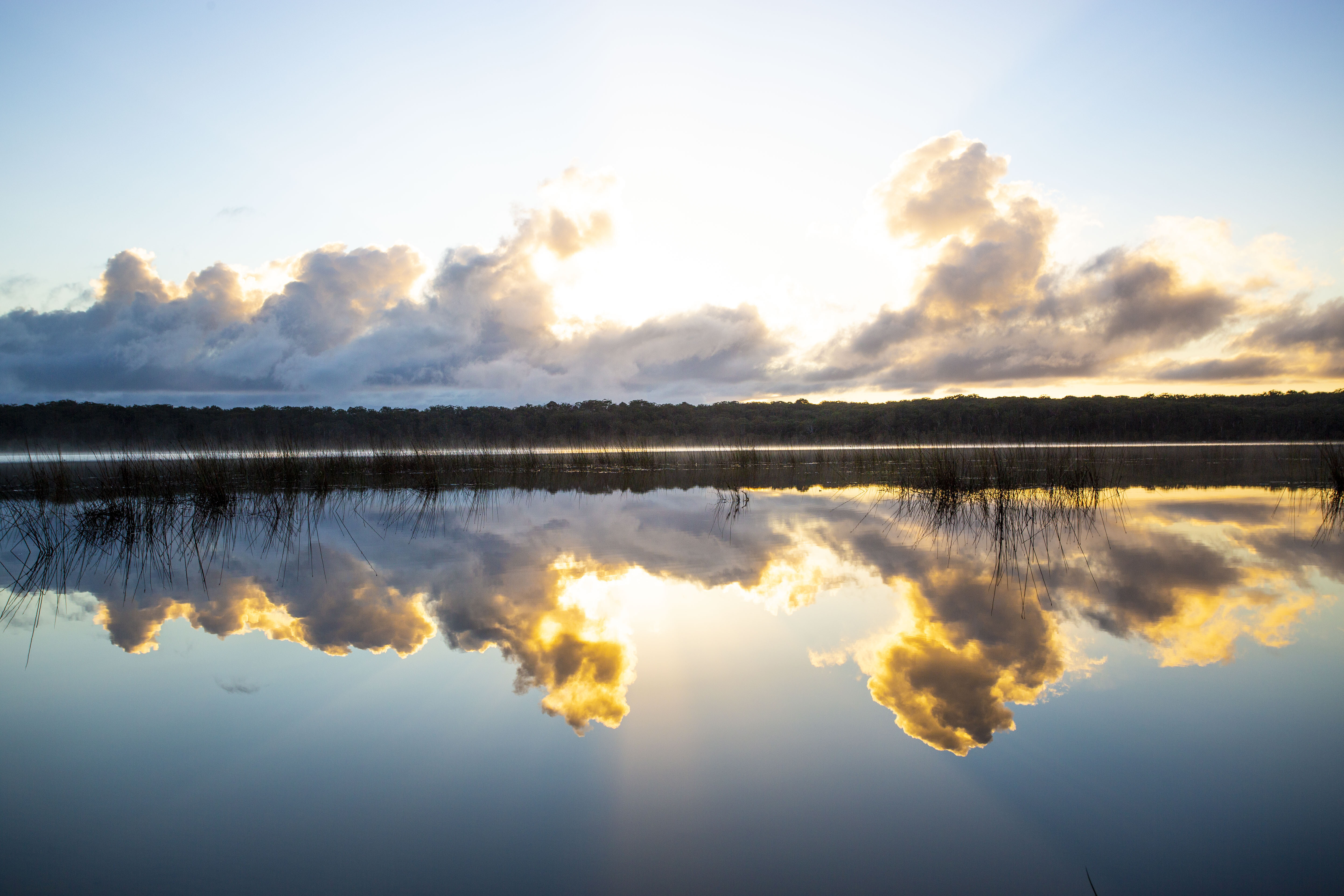
Being the most southern, Coogul Creek is closest to Moon Point and the popular fishing areas of Great Sandy Strait. Woralie Creek is the easiest to access for those with trailers, with some majestic but exposed campsites right near the track terminus. For a shady site beside a deep and fresh waterhole, it’s hard to go past Bowarrady Creek – but with only three main sites, it’s ‘first-in best-rested’.My pick is Awinya Creek, as the sites are spread out right along the beach and tucked in amongst the sheoaks for some welcome shade. But the access via Awinya Road gets rough and difficult for trailers and has a tidal creek crossing at the end, so this site is best suited for tent/vehicle-based camping.
If you really want to be alone, head farther north along the beach to Bowal Creek where you’ll likely have the place to yourself (well, at least until everyone else reads this article).
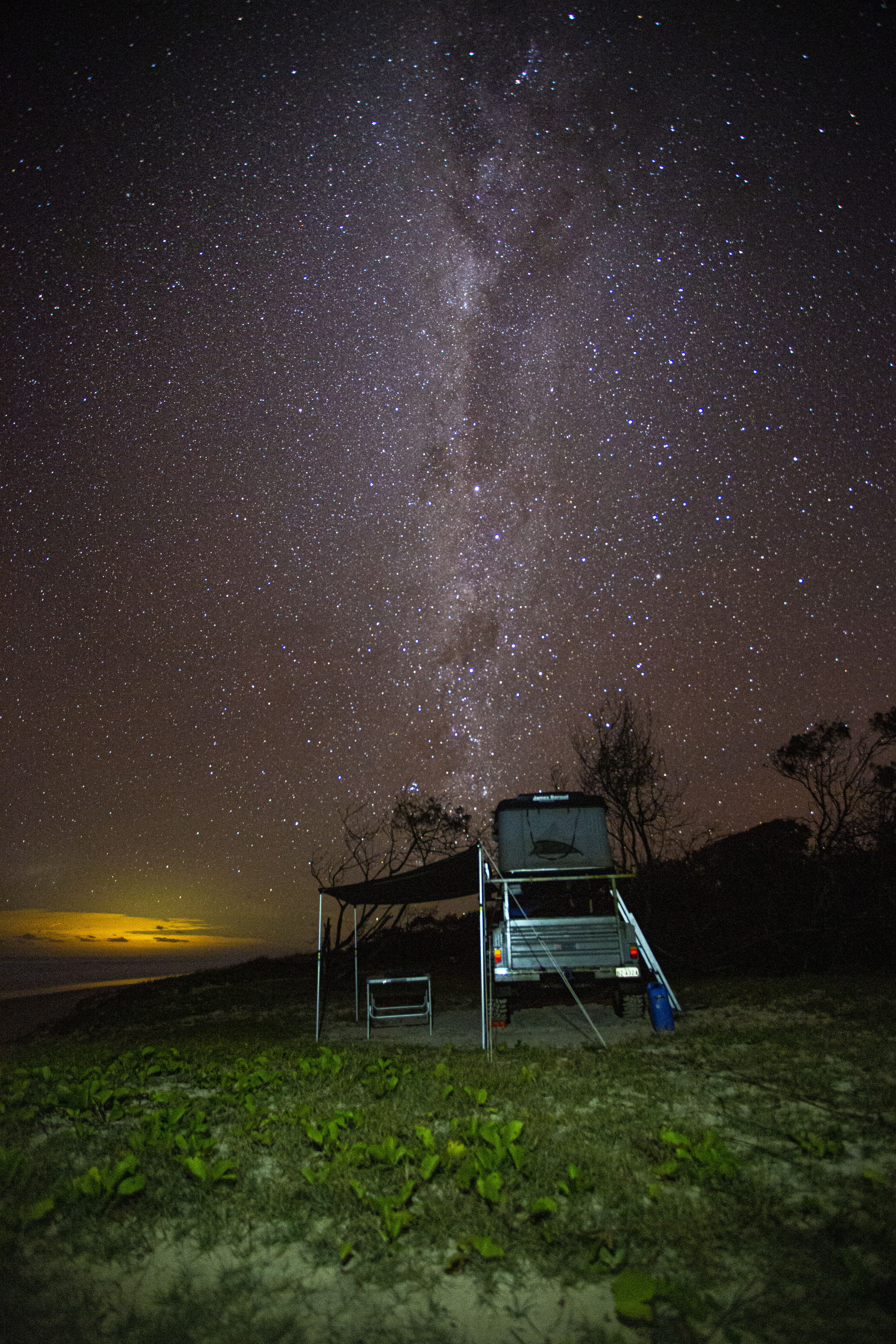
Numbers are well-managed, so be sure to book ahead. Small camper trailers are permitted at all sites but beware of the soft sand on the western beach, check the tides first and lower your tyres to less than 20psi. Summer months will likely bring mossies and sandflies, so winter and spring seasons are the best time here.The morning of my fiftieth birthday, I rose early to catch the sunrise and walked along the beach pondering the next decade of life. Scotty had made me a fresh, hand-ground coffee. We had the full length of the beach to drive, lunch at a mate’s place at Rainbow Beach and my own family celebration to head home to. My next chapter of life was looking good already!
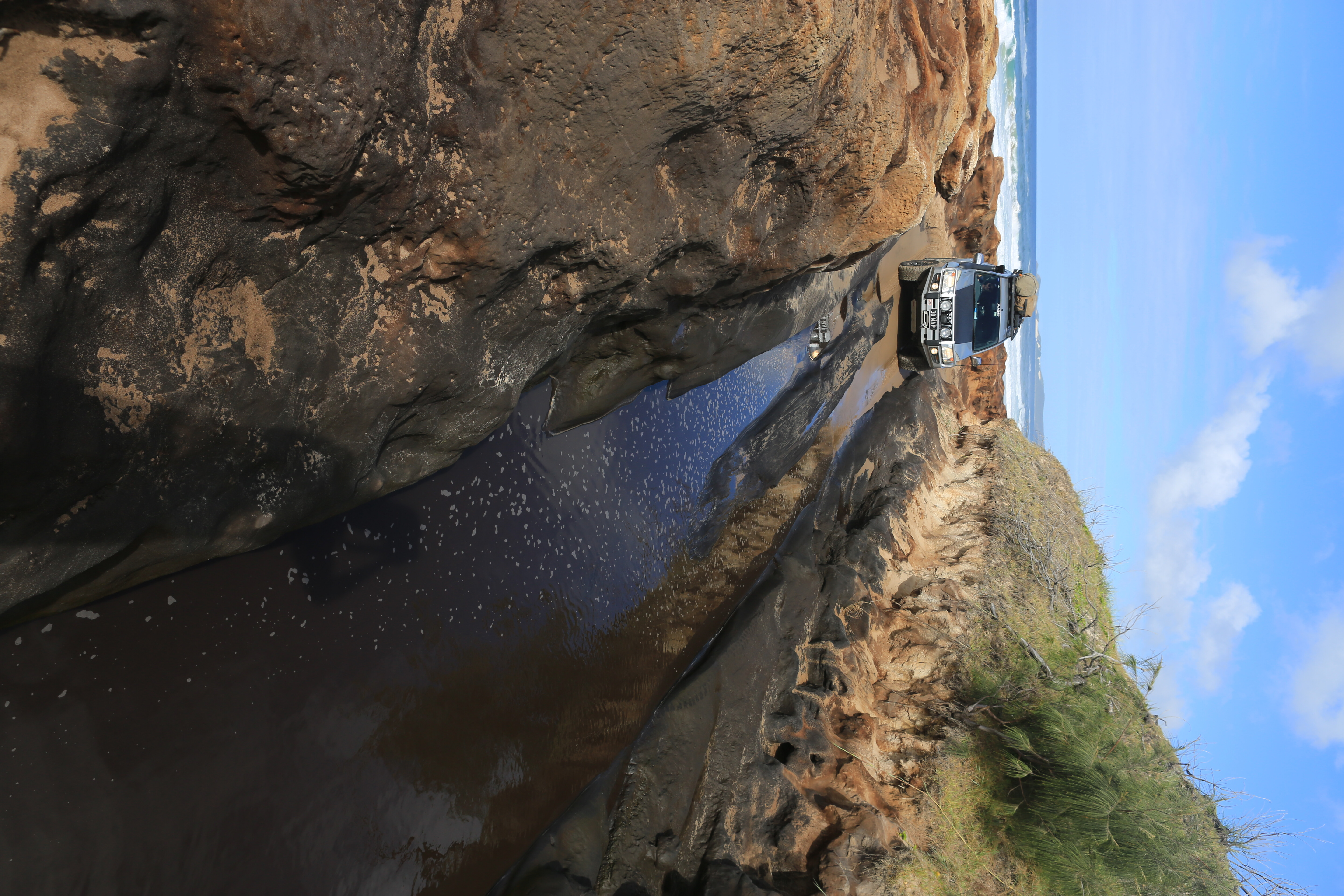
FRASER’S BEST FOREST DRIVES
SOUTHERN LAKES DRIVE: Beyond the well-trodden central forest roads connecting Kingfisher and Eurong via Lake McKenzie and Central Station, there are several fantastic and lesser-used trails. An old favourite is the Southern Lakes Road (29km, three to four hours) which leaves the Eastern Beach near Dilli Village and twists its way through the southern heathlands, swamps and forests, kissing the peaceful shores of Lakes Boomanjin and Birrabeen and meandering on to Central Station amongst the giant satinays, brushbox and hoop pines of the central forests.WORALIE ROAD: Farther north, Woralie Road (21km, two to four hours) provides easy access from Maheno Beach through lush rainforest, swamps and ridgetop woodlands, and on to the gorgeous west-coast beaches overlooking Hervey Bay. For a full cross-section of this beautiful landscape, head north along the western beach to Awinya Creek and return via Awinya Road.
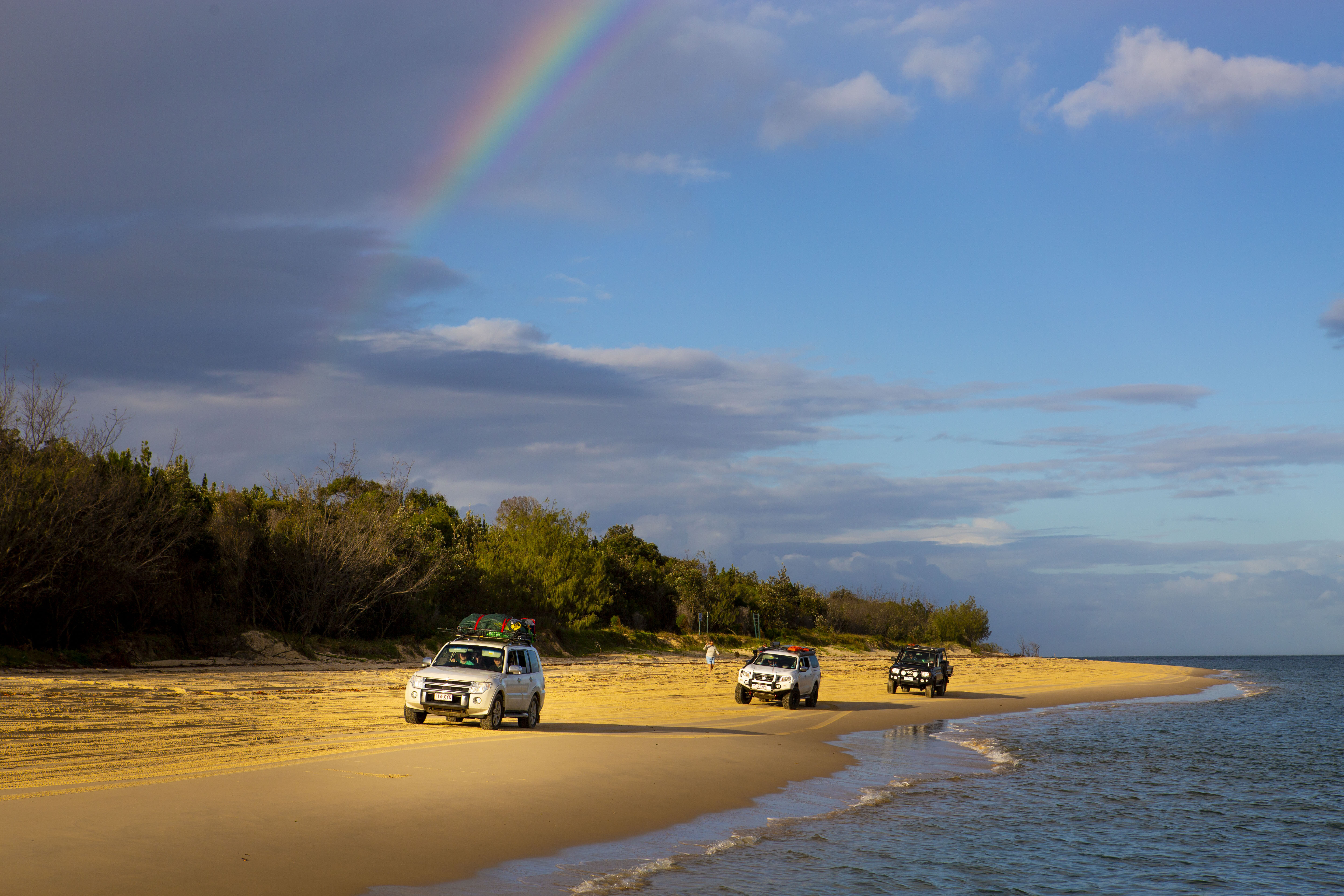
FIVE THINGS TO SEE
1. CENTRAL LAKES There are a mix of fantastic pristine freshwater lakes on K’gari that are perfect for a cooling dip. Boorangoora (Lake McKenzie) in particular, has crystal blue water fringed by brilliant white sand.2. THE MAHENO Driving the eastern ocean beach, the wreck of the SS Maheno is an interesting and popular tourist attraction. The former trans-Tasman liner was steaming north to a ship-breaker’s yard in Japan when a cyclone washed her ashore in 1935.3. CHAMPAGNE POOLS These volcanic rock outcrops create ocean-level pools that are best at mid-tide when breaking waves cascade champagne-like into the protected pools for a refreshing and safe dip. The Champagne Pools boardwalk is on the Eastern Beach scenic drive.4. VALLEY OF THE GIANTS For serious hikers, take the 90km one-way Fraser Island Great Walk. A highlight is the Valley of the Giants walkers’ campsite where you can set up camp and spend a night or two among the massive tallowwood and 1000-year-old towering satinay trees.5. WHALE WATCHING The calm waters of Platypus Bay, on the island’s western side, are a prime whale-watching spot. On their spring migration south, humpback whales stop to rest and tend to their calves in Hervey Bay.

